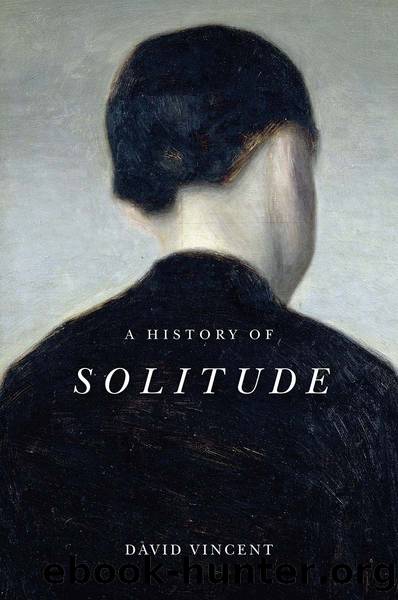A History of Solitude by David Vincent

Author:David Vincent [Vincent, David]
Language: eng
Format: epub
ISBN: 9781509536603
Publisher: Wiley
Published: 2020-06-15T00:00:00+00:00
They were dubious about whether the new systems were transferrable to their own country because they did not believe that the Catholic clergy in France had sufficient interest in penal reform to commit their time and energy to its operation.113
It was a two-way trade. Separate confinement facilitated the work of the chaplains, who in turn ensured that the benefits of solitude outweighed its dangers. John Clay, chaplain of Preston Prison, wrote that ‘it gives to the prisoner many solemn and uninterrupted hours for inwardly digesting what he may have learned in the daily and Sabbath services of the Chapel. It is clear, then, that the cell, though useless, if not injurious, unaccompanied by Christian ministrations, is the best auxiliary which the Christian teacher can possess in a prison.’114 The traditional Sunday services remained important. As the chaplains discovered when they sat down with individual prisoners, the level of knowledge of the basic tenets of Christianity was for the most part so low that it was difficult to conduct any kind of spiritual discourse. For the remainder of the week, the confinement of prisoners to individual cells made it easier for the clergy to do their job. The chaplains could demand the attention of each of their charges, secure in the knowledge that they would not be interrupted. ‘In the quiet of the prison cell,’ argued the leading proponents of separate confinement, ‘– and when humbled by correction – the warnings, promises, and consolations of the Gospel come home to the conscience with redoubled force. There is no feature in the Separate System which more favourably distinguishes it than the facility which it affords to the minister of religion in the discharge of the various duties of his sacred office.’115
The chaplains had a further role. Pentonville was described as a trial. It was a site of learning. A disorderly body of anecdote and a priori assertion was to be replaced by long-term evidence about what worked and what did not.116 A prison inspectorate was established in 1835 to act as the principal means of summarizing and analysing information generated by those charged with implementing government reforms.117 After Lord John Russell had formally committed the state to separate confinement by sanctioning the construction of Pentonville, the reporting process gained a new focus. The central question was whether and how the experience of solitude could be measured, either by narrative evaluation or by numbers.
In the year that Pentonville opened, Charles Dickens set the tone for the ensuing debate about the effects of prison reform. His American tour took him to the Eastern Penitentiary in Philadelphia. ‘The system here,’ he reported, ‘is rigid, strict, and hopeless solitary confinement. I believe it, in its effects, to be cruel and wrong.’118 He argued that no outsider could fully comprehend the consequence of the punishment. The faces of the convicts bore witness to ‘a depth of terrible endurance in it which none but the sufferers themselves can fathom, and which no man has a right to inflict upon his fellow creature’.
Download
This site does not store any files on its server. We only index and link to content provided by other sites. Please contact the content providers to delete copyright contents if any and email us, we'll remove relevant links or contents immediately.
Should I Stay or Should I Go? by Ramani Durvasula(6795)
Why We Sleep: Unlocking the Power of Sleep and Dreams by Matthew Walker(5655)
Fear by Osho(4090)
Flow by Mihaly Csikszentmihalyi(4058)
Rising Strong by Brene Brown(3786)
Why We Sleep by Matthew Walker(3779)
Too Much and Not the Mood by Durga Chew-Bose(3697)
How to Change Your Mind by Michael Pollan(3682)
The Hacking of the American Mind by Robert H. Lustig(3586)
Lost Connections by Johann Hari(3459)
He's Just Not That Into You by Greg Behrendt & Liz Tuccillo(3307)
Evolve Your Brain by Joe Dispenza(3059)
What If This Were Enough? by Heather Havrilesky(2946)
Resisting Happiness by Matthew Kelly(2890)
Crazy Is My Superpower by A.J. Mendez Brooks(2864)
The Courage to Be Disliked by Ichiro Kishimi & Fumitake Koga(2805)
The Book of Human Emotions by Tiffany Watt Smith(2776)
Descartes' Error by Antonio Damasio(2742)
In Cold Blood by Truman Capote(2688)
